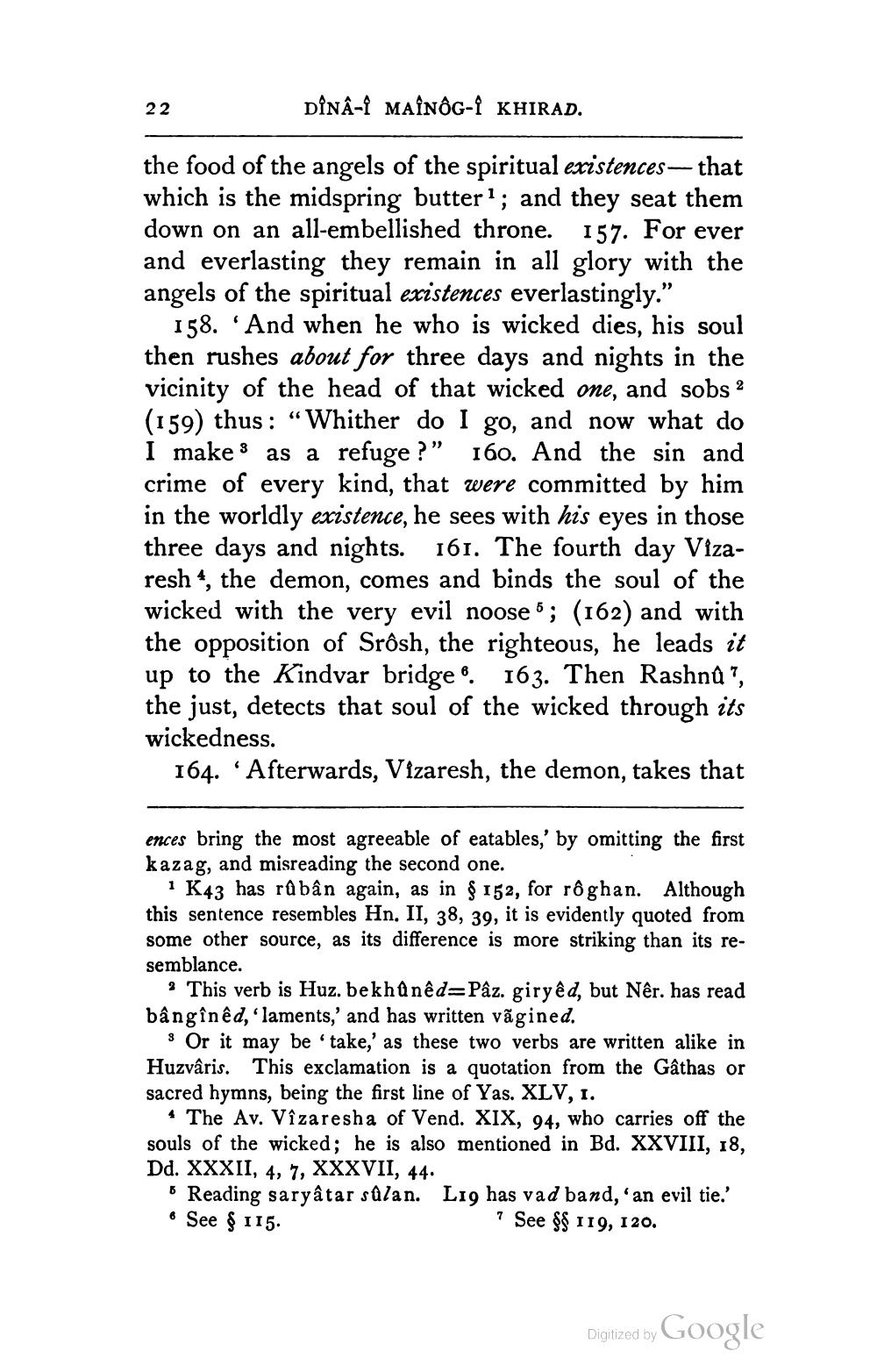________________
22
22
DÎNÂ-I MAÎNÔG-KHIRAD.
the food of the angels of the spiritual existences— that which is the midspring butter?; and they seat them down on an all-embellished throne. 157. For ever and everlasting they remain in all glory with the angels of the spiritual existences everlastingly."
158. 'And when he who is wicked dies, his soul then rushes about for three days and nights in the vicinity of the head of that wicked one, and sobs 2 (159) thus : "Whither do I go, and now what do I makes as a refuge ?" 160. And the sin and crime of every kind, that were committed by him in the worldly existence, he sees with his eyes in those three days and nights. 161. The fourth day Vizaresh 4, the demon, comes and binds the soul of the wicked with the very evil noose 5; (162) and with the opposition of Srôsh, the righteous, he leads it up to the Kindvar bridge &. 163. Then Rashna ?, the just, detects that soul of the wicked through its wickedness.
164. 'Afterwards, Vizaresh, the demon, takes that
ences bring the most agreeable of eatables,' by omitting the first kazag, and misreading the second one.
K43 has râbân again, as in § 152, for rôghan. Although this sentence resembles Hn. II, 38, 39, it is evidently quoted from some other source, as its difference is more striking than its resemblance.
This verb is Huz. bekhûnêd=Pâz. giryêd, but Nêr. has read bângînêd,‘laments,' and has written vãgined.
s Or it may be 'take,' as these two verbs are written alike in Huzvâris. This exclamation is a quotation from the Gâthas or sacred hymns, being the first line of Yas. XLV, 1.
4 The Av. Vîzaresha of Vend. XIX, 94, who carries off the souls of the wicked; he is also mentioned in Bd. XXVIII, 18, Dd. XXXII, 4, 7, XXXVII, 44. 6 Reading saryâtar sûlan. Lig has vad band, an evil tie.' See $ 115
7 See $S 119, 120.
Digitized by Google




